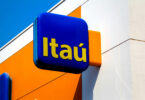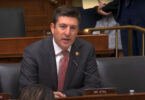At the start of August, Thailand opened the registration process for the 10,000 baht ($284) digital money giveaway that was part of an election pledge last year. This week the Senate approved a budget increase to fund the payments to less wealthy adults aged 16 or over. The uncertain legal status of the digital wallet payments, which aren’t legal tender, combined with restrictions on the digital cash usage, has attracted criticism from senators and economists. It highlights some of the debate around programmable money versus programmable payments.
Writing in the Bangkok Post, economist Chartchai Parasuk observed, “Perhaps, in the government’s mind, a DWT (digital wallet token) is almost on a par with genuine money — fiat money.”
He continued, “Wrong. Very wrong. A DWT is inferior money.”
As context, last year Fabio Panetta, then a director of the European Central Bank (ECB), made the following comment about the EU central bank digital currency (CBDC): “The digital euro would never be programmable money. The ECB would not set any limitations on where, when or to whom people can pay with a digital euro. That would be tantamount to a voucher. And central banks issue money, not vouchers.”
Digital wallet token restrictions
Notably, the Thai digital wallet project is not a CBDC and does not appear to be operated by the Bank of Thailand, which is one of the most advanced central banks regarding CBDC work. However, the Thai digital wallet tokens restricts all three aspects – where (within the local area), when (a six month period) and to whom payments (small businesses) can be made and they have two additional layers of restrictions.
It specifies who is eligible to receive the money, excluding not just criminals, but people who have been detained or have violated other government programs. Plus the program stipulates the range of items people can buy, which includes food and household items but excludes the purchase of fuel, electronic equipment, alcohol, tobacco and a list of other items. The purpose of the spending restrictions and short timeframe are an attempt to boost the economy.
How will it work for small merchants?
The Thai Ministry of Finance has not yet provided the details for merchants, resulting in people filling in the blanks. Specifically, the Ministry of Finance said there will be multiple phases. The first will likely start in November when consumers can start spending, but only with small local merchants. In a subsequent phase, those small merchants can spend the tokens with other businesses.
Hence, Mr Parasuk assumed that the small merchants won’t be able to cash out from the tokens and have to hold on to the tokens for months before they can use them to pay other businesses. We read the Ministry of Finance announcement, and this is a reasonable assumption. However, until the Ministry publishes the merchant process, it’s not definitive.
If Mr Parasuk’s deduction is accurate, this will cause a cash crunch for these small merchants, as they have to purchase new stock and pay wages. Instead of receiving cash that they can use immediately for these purposes, they have to wait to spend the tokens and they rarely have a financial buffer. Hence, most small merchants would refuse to accept the tokens, which is permissible given the tokens are not legal tender. However, the program’s goal is to drive consumer business towards small merchants, not large businesses. Mr Parasuk suspects the reason for restricting merchants from encashing the tokens is the time it will take for the government to issue bonds to finance the giveaway.
Likely spending habits
A Thai Chamber of Commerce survey reinforced his point. It indicates that the bulk of funds are likely to be spent in the first month rather than over the six month span of the program. Almost four out of five people said they would start spending the money in the first month. Of the eligible recipients, 82.6% said they’d sign up for the digital wallet and 64.1% said they would spend it all it at once.
This inability for the merchants to convert the tokens to cash is something likely specific to the Thai program, but might be a learning point for future digital money programs.
Restrictions on how to spend digital currency
Meanwhile, some people suggest that the government should expand the range of eligible goods and services. Certain proposals wouldn’t help with the government’s aim of promoting consumption, such as using the tokens for paying taxes. A senator in this week’s budgetary session is from a family of farmers. With five family members, the giveaway will total 50,000 baht. They’d like to repair the house and buy cows, but with the spending restrictions, they can’t. Hence, they would prefer a cash giveaway.
The Thai Chamber of Commerce survey asked which currently restricted products people would most like to spend money on. Top of the list was fuel and natural gas, followed by electrical appliances, electronic devices and communication tools.
Big brother at work?
Circling back to Europe, during the parliamentary debates around the digital euro, many Eastern European MPs voiced concerns that a CBDC could be a tool to restrict how citizens spend their money on. For example, they worried that people wouldn’t be allowed to buy meat.
Cornell Professor Eswar Prasad echoed similar sentiments in an opinion piece on the Thai project in the Financial Times. “It is not hard to envision a future in which CBDC usage is restricted to ‘good’ citizens and ‘acceptable’ expenditures, as deemed by the government,” Prasad wrote.
With the giveaway only available to people with income below 840,000 baht ($24,000) and savings of less than 500,000 baht ($14,000), the government has to check people’s income before allocating tokens. During this week’s senate hearing, legislators raised privacy concerns. However, the Ministry of Finance said the app contacts the tax office for a yes/no response and doesn’t collect additional information.
No matter how well intended tokens or CBDCs might be, it’s going to be hard to assuage fears. As a result, some people are less likely to rely directly on government forms of payment if they have a choice. This will cap the potential for retail CBDCs.






